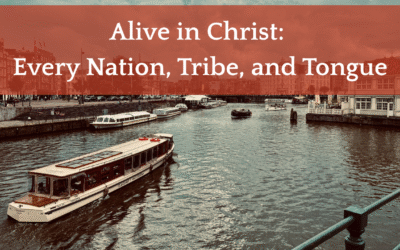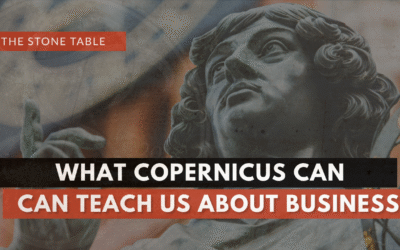Missions: I Do Not Think it Means What You Think it Means

In the 1987 cult classic The Princess Bride, Vizzini, the Sicilian mastermind, is constantly outmatched by heroic Wesley. Every time his new scheme is thwarted, he looks at his hired henchman and declares with a lisp, “inconceivable!” This happens again and again as the story unfolds until a puzzled Inigo Montoya finally quips:
You keep using that word. I do not think it means what you think it means.
I feel that way about the word “missions,” too.
We were hard core with evangelism when I was a kid. Our youth group encouraged us to carry our Bibles to school. We wore all kinds of Christian t-shirts to class. We practiced strategies for sharing the Gospel with our friends in the school lunchroom. In the warm months, we would even pile into the church van, head into the city, and spend a few hours witnessing to strangers on the streets of downtown Indianapolis.
I know this probably seems uncomfortably overzealous into today’s Western culture. In fact, Barna says younger Christians today actually think evangelism is wrong, but that’s a discussion for another day. Here’s the suggestion I want to put into the broader conversation: those types of evangelism and outreach efforts are good and right and part of our calling as followers of Jesus…
…but they aren’t “missions.”
Words Mean Things
A number of people much smarter than me have wrestled with these things in much more depth and articulate fashion. But I think it’s important to define what we mean when we say certain words and use specific terms.
When I say “missions,” I’m referring to the cross-cultural proclamation of the Gospel and planting of the Church with prioritization of the unreached. Missions is going out from where you are to where the Gospel currently is not. Local evangelism, compassion outreach, and justice efforts are vital, they’re God-honoring, they’re part of the Church’s role in every community where they are planted. But that’s not fulfilling the Great Commission.
What is the Great Commission? The Great Commission is the last instructions the resurrected Jesus gave to his disciples as he ascended into heaven. These instructions aren’t just for certain Christians or “professional” pastors and missionaries, Jesus’ words are aimed at all of us who call him Lord (including those of us with everyday marketplace jobs and businesses). Let’s take a closer look:
“Therefore, go and make disciples of all nations, baptizing them in the name of the Father and the Son and the Holy Spirit.”
–Matthew 28:19 ESV
Jesus said to:
GO: move out, go forth, get going!
MAKE DISCIPLES: train followers, those who trust Christ for their salvation and adhere to Jesus with their whole lives.
ALL NATIONS: the Greek word here is ethnos, or people joined by similar customs or culture.
We can better translate the word nations here, not as geopolitical nation-states, but as people groups. And Jesus said to go to all of them.
And yet according to the Joshua Project, there are approximately 7,400 people groups that are considered unreached with the Gospel today. We call these unreached people groups (UPG’s). An unreached people group, as defined by missiologists today, is a people group that is less than 2% followers of Jesus, the percentage needed to create a self-perpetuating movement toward Christ. These people groups must have cross-cultural help.
These 7,400 unreached people groups total 3.2 billion people or 42% of the global population.
For the vast majority of these UPG’s, we’re not just talking about a general disinterest in Jesus, or a small number of churches or Christians in a local community. We are talking no access to the Gospel. If you are born into this 42%, there’s a good chance you will live and die without ever as much as meeting a Christian, let alone hearing the life-giving message of the Gospel.
Why Am I Wading Into These Waters?
I hear a lot of Christians today using the word “missions” interchangeably with every kind of local compassion and outreach effort of their church or ministry. We invite our suburban neighbors to church and call that missions. We invest in an economically impoverished area of our city and call that missions. We volunteer at the local homeless shelter and call that missions.
My concern is not that we have too much passion for reaching and impacting our local community, but that we check the missions box off our list when we haven’t really engaged the Great Commission at all. When everything becomes the Great Commission, the actual Great Commission is what ends up getting lost. This is not an either/or question, it’s a both/and campaign!
Using access as our litmus test, there are no true UPGs in your city. Are there unchurched people? Are there people who don’t know Jesus? Are there neighbors who need hear the Gospel? Yes! Should we be reaching out to these people, sharing the Good News, inviting them to our churches, praying for their salvation? Of course! But your lost neighbor is not the same as the lost person in Yemen who has who doesn’t have a neighbor like you to invite them to church because there are no Christian neighbors and only one church for every 8 million people.
Inviting your unsaved neighbor to church on Easter Sunday is beautiful. You should do it! But it’s not missions. The Great Commission is only fulfilled when we pray, send, and go across borders and cultures to tell people who have never heard the Good News about Jesus. That is our Great Commission calling, and all of us have to wrestle with what we are going to do about it.
Clarifying Scripture
According to many of my missiologist friends, we misinterpret Acts 1:8 quite regularly.
“But you will receive power when the Holy Spirit has come upon you, and you will be my witnesses in Jerusalem and in all Judea and Samaria, and to the end of the earth.”
We talk about this verse as if “our Jerusalem” is our local community; that we are to prioritize home first and then move out in concentric circles. But there’s one issue with this interpretation: none of the disciples were from Jerusalem! They were all from Galilee. Jesus was telling his followers to leave their homes and go where the Good News had not yet gone from day one! That has always been the heart of the Great Commission. Who hasn’t yet heard and how can they hear?
We need to invite our neighbors to church. We should help the poor and invest our resources into the economically underprivileged areas of our cities. We should plant new vibrant churches in the communities all around us.
And we must passionately embrace Jesus’ Great Commission calling to take the Gospel to the places where the Gospel has not gone yet. That is missions.



